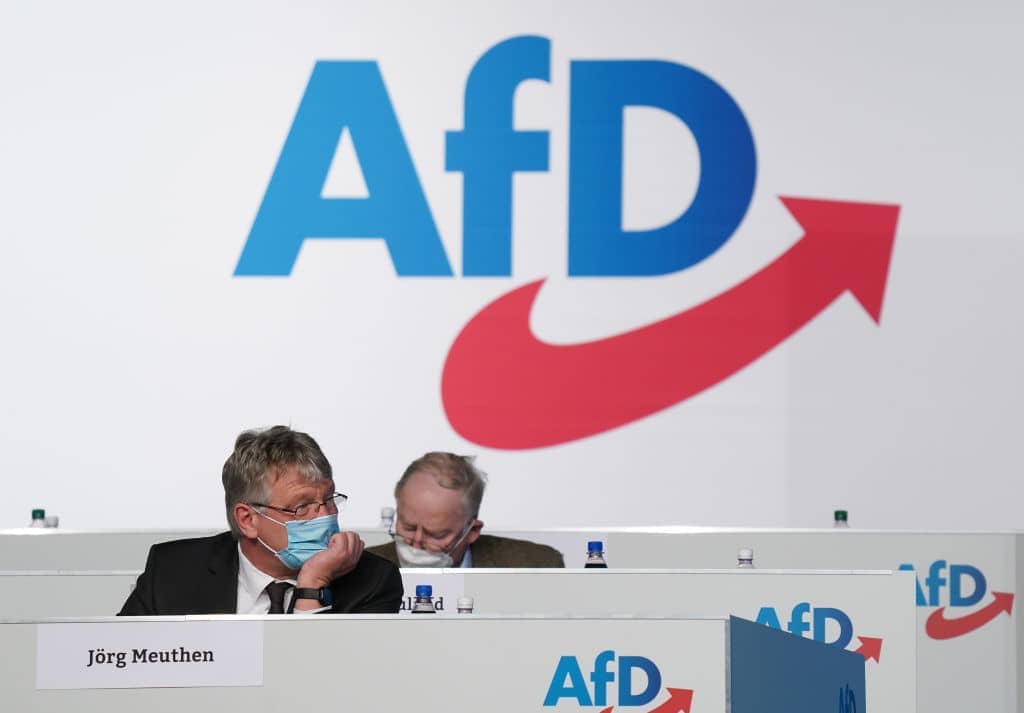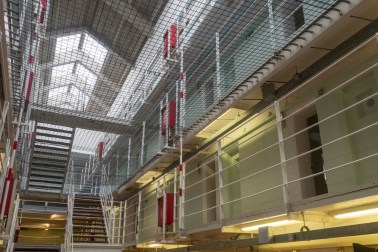Germany’s far-right Alternative for Germany (AfD) has lost its third chair in nine years. Jörg Meuthen is the latest to have succumbed to an internal power struggle over the party’s direction. His departure last week ends any illusions about the AfD eventually becoming a viable option in German politics.
Like his predecessors Bernd Lucke and Frauke Petry, Meuthen stood down as chair – and quit the party – because of concerns about radicalisation. ‘The heart of the party today beats very far to the right,’ he said. ‘I can see the totalitarian overtones.’
Since its creation in 2013, the AfD has been through a metamorphosis from an economically liberal, soft Eurosceptic and conservative alternative to Germany’s centre-right CDU into a right-wing party, steered by nativism and now apparently totalitarian characteristics.
‘The heart of the party today beats very far to the right,’ said Jörg Meuthen. ‘I can see the totalitarian overtones.’
In former East Germany – which has traditionally been fertile ground for radical agitators, including neo-Nazi elements – the AfD is not only the most popular party at the state level (in Saxony and Thuringia, for example) but it also has an important presence in various local authorities. The eastern branches of the AfD are also home to ‘Der Flügel’ (The Wing), the party’s most notorious faction. Out of 32,000 party members, approximately 6,400 are part of the Flügel and the ideology it represents.
The ‘Erfurt Resolution’ of March 2015 is considered the Flügel’s founding document. The resolution strictly opposes an adaptation of the AfD to the ‘political establishment’. Instead, it calls for the party to remain a ‘resistance movement’, act as a ‘fundamental, patriotic and democratic alternative to the established parties’ and serve as a ‘movement of our people’ against what it sees as ‘social experiments’, such as gender mainstreaming and multiculturalism.
Meuthen had previously defended the Flügel in his attempt to ‘integrate’ and deradicalise the fringe elements of the party he led. In 2017, during the Flügel’s notorious annual conference, the ‘Kyffhäuser Meeting’, Meuthen said that ‘the Flügel is an integral part of our party and will always be so in the future’. His reasons, of course, were not entirely pure: he knew that the party would struggle to grow if it alienated thousands of Flügel members. For Meuthen, fraternising with Flügel members was seemingly a necessary evil.
But it has been clear for some time that his approach to bring them on board politically has been doomed. After the Federal Office for the Protection of the Constitution classified the Flügel as a suspected case of right-wing extremism in January 2019, Meuthen desperately tried to reverse course. In a speech at the party conference of the Baden-Württemberg AfD, Meuthen sharply distanced himself from the Flügel and other far-right factions and people in the party:
‘These members do not shy away from anti-Semitic or racist positions, even to the point of questioning the Holocaust! If you want to live out your group-related enmity here, we say in no uncertain terms: Find another field for your neuroses! You will never hijack this party!’
But these pleas ultimately fell on deaf ears. Meuthen’s demand that the Flügel dissolve also, ultimately, went ignored. And now that Meuthen has abdicated, Flügel’s position is stronger than ever. No future leader will succeed in taking it on.
As for the AfD, the party now faces months of internal power struggles. Meuthen’s supporters will try to fill the vacuum at the top; and his departure could even pave the way for Björn Höcke – one of Flügel’s leaders – who, among other thing, infamously called the Holocaust memorial in Berlin a ‘monument of shame’ – to become party leader. He could make his move as soon as this summer’s annual conference. Höcke himself has already declared his interest in the top job, stating he would ‘consider running for the office’.
Meuthen’s hopes that he could purge the party’s radical elements sufficiently to make the AfD ready for government in a similar manner to Germany’s Green party are now in tatters. His departure means that any scenario in which the AfD could become a future coalition partner, part of a conservative government with the CDU/CSU, has evaporated. The outlook for the AfD is to become a vehicle that is now even more attractive than ever for radicals and extremists.






Comments